Photo Courtesy of Belift Lab
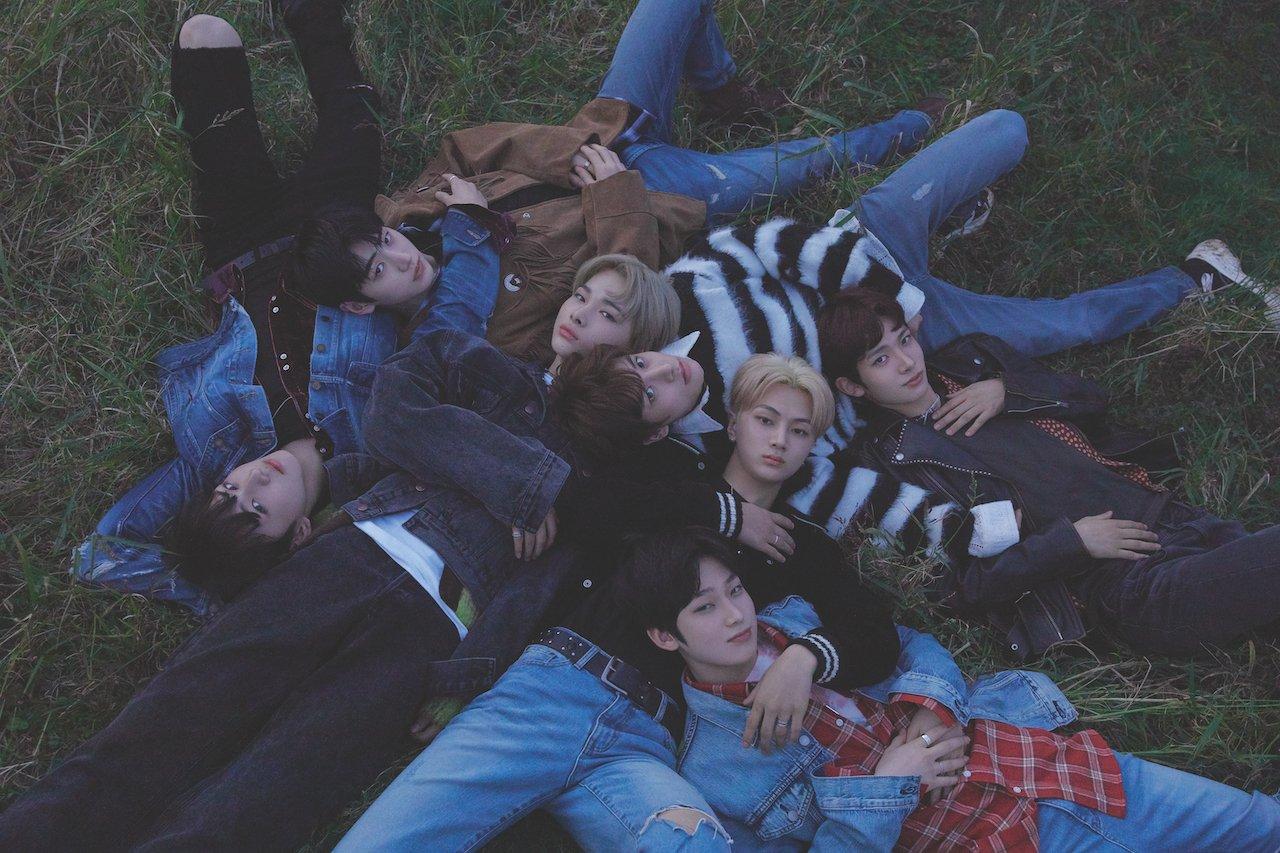
ENHYPEN
news
Meet ENHYPEN, K-Pop's Latest Breakout Boy Group
The emerging global act tells GRAMMY.com about their debut mini-album, 'BORDER : DAY ONE,' and their plans to take over the worldwide K-pop industry
One of the most exciting K-pop debuts in recent years came at the end of 2020: ENHYPEN. The seven members of the group were selected by fans worldwide after they competed on Mnet's "I-LAND," a South Korean survival reality show. Featuring members who were former trainees under Big Hit Entertainment, the masterminds behind BTS and TOMORROW X TOGETHER, and from various backgrounds, ENHYPEN are now spreading the K-pop agenda worldwide.
After wrapping up "I-LAND'' in September, the septet immediately began preparing their highly anticipated debut: BORDER : DAY ONE, released last November on Belift Lab, a joint venture between Big Hit and South Korean entertainment company CJ ENM. (Belift Lab are the creators of "I-LAND.")
On BORDER : DAY ONE, ENHYPEN explore a wide range of genres while grappling with their new status as an emerging global act. The album's lead single, "Given-Taken," is a high-energy pop song showcasing the guys' youthful vocals and doubling as a dark power anthem; the song's lyrics tackle the complex question of whether they have earned their coveted spots in the group, or taken them.
Elsewhere, "Intro: Walk The Line" takes on alternative hip-hop, "Let Me In (20 CUBE)," produced by Big Hit's FRANTS and "Hitman" Bang, mixes reggae with hip-hop, and closer "Outro: Cross The Line" wraps up the album in an eerie, waltz style.
<style>.embed-container { position: relative; padding-bottom: 56.25%; height: 0; overflow: hidden; max-width: 100%; } .embed-container iframe, .embed-container object, .embed-container embed { position: absolute; top: 0; left: 0; width: 100%; height: 100%; }</style><div class='embed-container'><iframe src='https://www.youtube.com/embed//nQ6wLuYvGd4' frameborder='0' allowfullscreen></iframe></div>
Since debuting in November, ENHYPEN have taken the international K-pop world by storm. Their debut mini-album broke the record for highest first-week sales in Korea among rookies who debuted in 2020, and they won the Next Leader award, aka rookie of the year, at the Fact Music Awards within 12 days of their debut. Their exploding social media presence also reflects their ability to connect with global fans: They currently have more than 1 million followers on Twitter and more than 3 million followers on TikTok.
Beyond the numbers game, the guys come from diverse backgrounds that align with their goals for world domination: Sunghoon, who gave up a successful career as a competitive figure skater to become an "idol," Sunoo, Heeseung and Jungwon are Korean; Jay is from the U.S.; Jake is Australian; and Ni-ki, the group's youngest member, is Japanese.
Surrounded by some of the best minds in the industry, ENHYPEN have a promising future ahead of them. With young members who are eager to learn and grow, the group is ready for the burgeoning worldwide success that's on their horizon. Despite debuting in a pandemic, which has caused them to rely on the power of social media to connect with ENGENES, their so-called fan base, all eyes are now on ENHYPEN.
GRAMMY.com checked in with ENHYPEN to talk about their debut mini-album, BORDER : DAY ONE, and their plans to take over the worldwide K-pop industry.
<style>.embed-container { position: relative; padding-bottom: 56.25%; height: 0; overflow: hidden; max-width: 100%; } .embed-container iframe, .embed-container object, .embed-container embed { position: absolute; top: 0; left: 0; width: 100%; height: 100%; }</style><div class='embed-container'><iframe src='https://www.youtube.com/embed//FKG48r9Wl8o' frameborder='0' allowfullscreen></iframe></div>
First off, you're making your debut not long after ending "I-LAND." What has the process been like preparing for your debut? Has it been difficult or more demanding than training on the show?
Jake: We did our best to prepare, wanting to meet our fans as soon as possible. We helped each other out and received help from our staff as well, so the preparation process was pretty smooth.
There are huge expectations for your group, with many considering you guys the most anticipated rookie debut. How does it feel to have so much support already? How do you deal with the pressure, if any?
ENHYPEN: We are thankful for all this support, and it motivates us to do even better. We try to take all this as a good energy that fuels us to work hard to show our fans the best version of ENHYPEN.
Read: BTS Talk Inspiration Behind "Dynamite," New 2020 Album, Gratitude For ARMY & More
A lot of new acts debut in the K-pop industry every year. What do you hope to bring that is new and different from other artists? In your opinion, what makes ENHYPEN special?
ENHYPEN: ENHYPEN's forte is music that is rooted in our own stories and performance and the chemistry between the seven of us … Our teamwork has been getting better and better as we've been together throughout "I-LAND" as well as the process that led to [our] debut.
<style>.embed-container { position: relative; padding-bottom: 56.25%; height: 0; overflow: hidden; max-width: 100%; } .embed-container iframe, .embed-container object, .embed-container embed { position: absolute; top: 0; left: 0; width: 100%; height: 100%; }</style><div class='embed-container'><iframe src='https://www.youtube.com/embed//pnhSnVQncvU' frameborder='0' allowfullscreen></iframe></div>
Out of the six tracks on your debut EP, do you each have a song that resonates with you most or that you're most excited to perform?
Jungwon: "Given-Taken" resonated the most because the lyrics reflect our current situation. I'm most excited to perform "Given-Taken" and "10 Months." The latter is a very sweet song. The performance and gestures are more relaxed, and I just really like the song.
Heeseung: I can't wait to show "10 Months" because it puts a spotlight on ENHYPEN's vocals, dance and charms all at once. The song especially highlights the vocals, so we want to perform it really well.
Jay: It's "Given-Taken." The lyrics encapsulate the complex emotions that I'm feeling right now, and I want to deliver a genuine performance.
Jake: "Let Me In (20 CUBE)." This song shows a more groovy side to ourselves, and a performance with all of us in perfect synchronization.
Sunghoon: It's "Given-Taken" for me. I relate to this song the most because it talks about the complicated emotions of seven boys who have finally achieved their dream of [debuting] and are at the borderline of a new beginning. The performance radiates a dark and powerful energy.
Sunoo: I like "Let Me In (20 CUBE)" because of its catchiness, but "10 Months" resonated with me the most, because the lyrics [say] that despite looks of a grown-up, we have a lot more room to grow emotionally and mentally mirror ourselves. Also, the cute performance allows us to show fans various facets of ENHYPEN.
Ni-ki: For me, it's "Let Me In (20 CUBE)." I personally like up-tempo melodies, and I also think this song underscores ENHYPEN's charms really well.
More K-Pop: TOMORROW X TOGETHER On How Their New 'minisode1 : Blue Hour' EP Marks The Beginning Of A New Era
The lead single, "Given-Taken," addresses the complex emotions you face as you're starting a new beginning, which is fitting for your journey and relatable for a diverse audience. What about your group do you hope resonates most with audiences?
ENHYPEN: "Given-Taken" is a song that we can do at this moment as it captures our current situation. We're really at the beginning right now, so we hope that these complex emotions one has at the verge of a new start resonates with many people.
You've been working with Big Hit's well-known producers on your EP. Is there anything you have learned about producing or songwriting through the process? How do you hope to make your music your own?
Heeseung: The process of making this album taught me how to polish my rhythm and groove into a final output and about the importance of a good delivery. I will take all this into account for the recording that will come hereafter and make good music.
Jungwon, as the leader of ENHYPEN, what do you think makes you a good frontman? How would you describe your group's chemistry?
Jungwon: I think the most important thing is communication, so I try to listen to our members' opinions as much as possible. ENHYPEN's chemistry is really solid!
It must be tough to debut during a pandemic, where you can't perform in front of fans in person. Despite that, you're part of the "digital native" generation that regularly utilizes social media. How do you hope to grow the fan-artist bond you have created for the time being? Is there anything you're looking forward to doing for your fans in person when time allows?
Sunoo: We connected with our fans via socials and livestreams. To keep this connection strong, we want to show them various aspects of ENHYPEN [that] we haven't revealed yet!
You're obviously very busy, but outside of your recent debut, what have you guys been doing to pass the time? What are your hobbies outside of music and performing?
Ni-ki: We usually watch choreography videos during breaktime or at our dorm because those videos point out what we lack. I personally like soccer clips and movies. We don't have much downtime these days, but I want to go [watch] movies and soccer games with our members soon.
This is a really exciting time for all of you, and you're getting ready to build your own legacy after various years of training. What are you most excited about for the near future, and what career or debut goals do each of you have? What are some of your biggest dreams?
Jay: My career goal is to become a versatile artist not limited to a certain specialty. And throughout all that process, to be close to our fans. As for now, I wish we could perform on the global stage with the costumes I created or took part in designing.
Lastly, for those unfamiliar with your stint on "I-LAND," what is the most important thing people should know about ENHYPEN going forward?
Sunghoon: ENHYPEN grows together by connecting one another. Our group's goal is to connect worlds and people through our music.

Photo: Brett Carlsen/Getty Images for Spotify
news
New Music Friday: Listen To New Songs From Halsey, MGK And Jelly Roll, XG & More
As July comes to a close, there's another slew of new musical gems to indulge. Check out the latest albums and songs from Paris Hilton and Meghan Trainor, Mustard and more that dropped on July 26.
July has graced us with a diverse array of new music from all genres, lighting up dance floors and speakers everywhere.
The last weekend of the month brings exciting new collaborations, including another iconic track from Calvin Harris and Ellie Goulding, as well as a fierce team-up from Paris Hilton and Meghan Trainor. Halsey and Muni Long offered a taste of their forthcoming projects, while Jordan Davis and Miranda Lambert each delivered fun new country tunes.
In addition to fresh collabs and singles, there's a treasure trove of new albums to uncover. Highlights include Ice Spice's Y2K!, Rakim's G.O.D., Sam Tompkins' hi, my name is insecure, Wild Rivers' Never Better, Tigirlily Gold's Blonde, and kenzie's biting my tongue.
As you check out all the new music that dropped today, be sure you don't miss these 10 tracks and albums.
mgk & Jelly Roll — "Lonely Road"
Although fans anticipated Machine Gun Kelly's next release to mark his return to hip-hop, no one seems to be complaining about "KellyRoll." Embracing the trend of venturing into the country genre, mgk teams up with fellow GRAMMY-nominated artist Jelly Roll on their newest track, "Lonely Road."
The genre-blending track interpolates John Denver's classic "Take Me Home, Country Roads." However, unlike Denver's sentimental ode to the simplicity of rural life, mgk and Jelly Roll reinterpret the track through the lens of romantic relationships that have come to a, well, lonely end.
As mgk revealed in an Instagram post, "Lonely Road" was a labor of love for both him and Jelly Roll. "We worked on 'Lonely Road' for 2 years, 8 different studios, 4 different countries, changed the key 4 times," he wrote. "We finally got it right."
Halsey — "Lucky"
In another interpolation special, Halsey samples not one but two classics in their latest single, "Lucky." The song's production features elements of Monica's 1999 hit "Angel of Mine," while the chorus flips Britney Spears' fan-favorite "Lucky" into a first-person narrative.
While Halsey has always been a transparent star, their next project is seemingly going to be even more honest than their previous releases. After first revealing their journey with lupus with the super-personal "The End" in June, "Lucky" further details their struggles: "And I told everybody I was fine for a whole damn year/ And that's the biggest lie of my career."
Though they haven't revealed a release date for their next project, Halsey referred to her next era as a "monumental moment in my life" in an Instagram post about the "Lucky" music video — hinting that it may just be their most powerful project yet.
Read More: Everything We Know About Halsey's New Album
Paris Hilton & Meghan Trainor — "Chasin'"
Ahead of Paris Hilton's forthcoming album, Infinite Icon — her first in nearly 20 years — the multihyphenate unveiled another female-powered collaboration, this time with Meghan Trainor. Co-produced by Sia, "Chasin'" is a lively pop anthem about discovering self-worth in romantic relationships and finding the strength to walk away from toxicity.
"She is the sister I always needed and when she calls me sis, I die of happiness inside," Trainor told Rolling Stone about her relationship with Hilton. Coincidentally, Trainor first wrote the track with her brother, Ryan, but the pop star was waiting for the right collaborator to hop on the track — and Hilton was just that.
"We made something truly iconic together," Trainor added. "It was a bucket list dream come true for me."
Empire Of The Sun — 'Ask That God'
A highly awaited return to music after eight years, Australian electro-pop duo Empire Of The Sun are back with their fourth studio album, Ask That God.
"This body of work represents the greatest shift in consciousness our world has ever seen and that's reflected in the music," says member Lord Littlemore in a press statement.
Like their previous work that transports listeners to a different universe, this album continues that tradition with trancey tracks like lead single "Changes" and the thumping title track. Ask That God offers a chance to reflect on the blend of reality and imagination, while also evoking the radiant energy of their past songs.
Calvin Harris & Ellie Goulding — "Free"
Dance music's collaborative powerhouse, Calvin Harris and Ellie Goulding, are back with another summer hit. Their latest track, "Free," marks the fourth collaboration between the duo — and like their past trilogy of hits, the two have another banger on their hands.
The track debuted earlier this month at Harris' show in Ibiza, where Goulding made a surprise appearance to perform "Free" live. With Harris delivering an infectious uptempo house beat and Goulding's silky vocals elevating the track, "Free" proves that the pair still have plenty of musical chemistry left.
Post Malone & Luke Combs — "Guy For That"
Post Malone's transition into country music has been anything but slow; in fact, the artist went full-throttle into the genre. The New York-born, Texas-raised star embraced his new country era with collaborations alongside some of the genre's biggest superstars, like Morgan Wallen and Blake Shelton. Continuing this momentum as he gets closer to releasing F-1 Trillion, Post Malone teams up with Luke Combs for the new track "Guy For That."
The catchy collaboration tells the story of a relationship that has faded, where the protagonist knows someone who can fix almost anything, except for a broken heart. It's an upbeat breakup song that, like Post's previous F-1 Trillion releases, can get any party going — especially one in Nashville, as Malone and Combs did in the track's music video.
Forrest Frank & Tori Kelly — "Miracle Worker"
Just one month after Surfaces released their latest album, good morning, the duo's Forrest Frank unveiled his own project, CHILD OF GOD — his debut full-length Christian album. Among several features on the LP, one of the standouts is with GRAMMY-winning artist Tori Kelly on the track "Miracle Worker."
Over a plucky electric guitar and lo-fi beats, Frank and Kelly trade verses before joining for the second chorus. Their impassioned vocals elevate the song's hopeful prayer, "Miracle Worker make me new."
Their collaboration arrives just before both artists hit the road for their respective tours. Frank kicks his U.S. trek off in Charlotte, North Carolina on July 31, and Kelly starts her world tour in Taipei, Taiwan on Aug. 17.
XG — "SOMETHING AIN'T RIGHT"
Since their debut in 2022 with "Tippy Toes," Japanese girl group XG has been making waves and showing no signs of slowing down. With their first mini album released in 2023 and now their latest single, "SOMETHING AIN'T RIGHT," the group continues to rise with their distinctive visuals and infectious hits.
The track features a nostalgic rhythm reminiscent of early 90s R&B, showcasing the unique personalities of each member. As an uptempo dance track, it's designed to resonate with listeners from all across the globe.
"SOMETHING AIN'T RIGHT" also serves as the lead single for XG's upcoming second mini album, set to release later this year.
Mustard — 'Faith of a Mustard Seed'
For nearly 15 years, Mustard has been a go-to producer for some of rap's biggest names, from Gucci Mane to Travis Scott. On the heels of earning his first Billboard Hot 100 chart-topper as a producer with Kendrick Lamar's "Not Like Us," he's back with his own collaboration-filled project.
Faith of a Mustard Seed features a robust 14-song track list with contributions from Vince Staples, Lil Yachty, Charlie Wilson, and more. The LP marks Mustard's fourth studio album, and first since 2019's Perfect Ten.
In an interview with Billboard, Mustard shared that the album's title is an ode to late rapper Nipsey Hussle, who suggested the title during one of their final conversations before his untimely death in 2019. And once "Not Like Us" hit No. 1, Mustard knew it was time to release the long-in-the-making album.
Latest News & Exclusive Videos

2024 Paris Olympics Opening Ceremony: Watch Celine Dion, Lady Gaga, Gojira & More Perform

Ice Spice Is The Drill Queen On 'Y2K!': 5 Takeaways From Her Debut Album

New Music Friday: Listen To New Songs From Halsey, MGK And Jelly Roll, XG & More

Watch Young MC Win Best Rap Performance In 1990

The Red Clay Strays Offer A New Kind Of Religion With 'Made By These Moments'
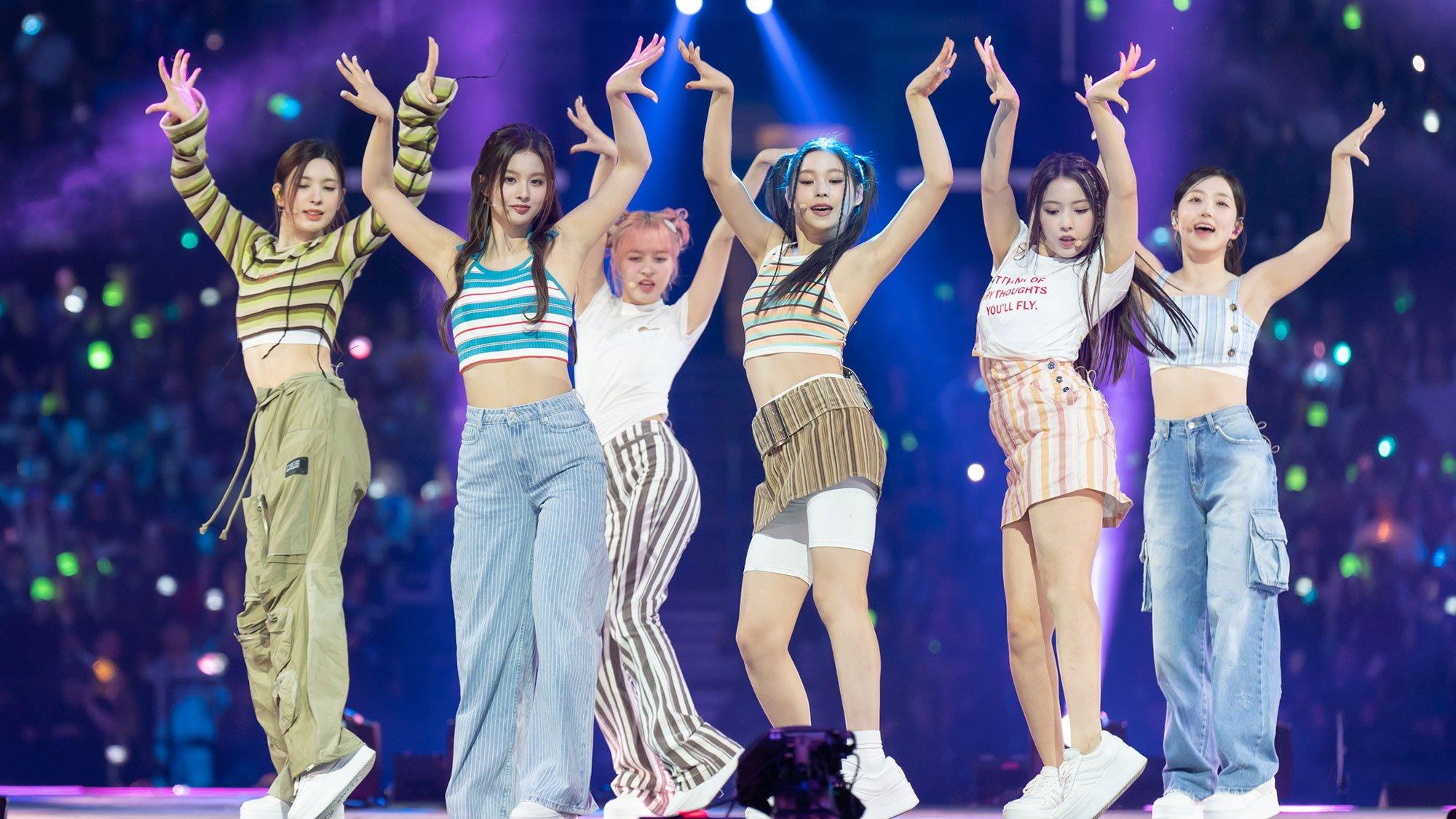
Photo: CJ ENM
list
KCON L.A. 2024 Returns: Get Ready With This Playlist Featuring NCT 127, Zerobaseone, ENHYPEN, Zico & More
The ultimate K-pop festival-convention returns to Los Angeles July 26-28, featuring a star-studded lineup with over 20 artists — including ENHYPEN, NCT 127, and Jeon Somi — interactive experiences, and unforgettable performances.
Ever since it first began in 2012, KCON has been a delightful surprise for attendees. Turn right on the convention floor, you might receive a goodie bag filled with high-quality skin care products. Turn left, and you could stumble into the first-ever performance of a K-pop group in the U.S. All this happens before the main concert even begins at night.
Returning to the L.A. Convention Center and Crypto.com arena from July 26-28, this year’s hybrid South Korean pop culture festival-convention event will host over 20 artists.
The line-up ranges from popular acts around like ENHYPEN and NCT 127 to '90s K-pop legends g.o.d and hip-hop icon Tiger JK (aka Drunken Tiger), plus burgeoning acts, including the newly formed seven-member girl group, IZNA, from the TV competition show I-LAND 2. KCON L.A. 2024 offers an array of musical exploration for anyone enraptured by the South Korean music scene.
Read more: 11 Rookie K-Pop Acts To Know In 2024: NCT Wish, RIIZE, Kiss Of Life & More
After days of meet-and-greets, showcase performances, and a special KCON Stage, each night of this year's KCON will culminate in a full-blown concert that will air in South Korea as part of the M Countdown music show.
Whether you’re a fan of soloists like Taemin, Zico or Bibi, girl groups like Kep1er and NMIXX, or boy bands like Zerobaseone and TWS, this KCON is undoubtedly for you. There are also surprises for anyone intrigued by changing entertainment technology, like Apoki, a virtual singer designed as a bunny from outer space.
While you may not (yet!) be a fan of all these artists, familiarize yourself with all that they have to offer with this playlist featuring some of their most popular and newest songs ahead of this year’s KCON L.A.
More K-Pop News
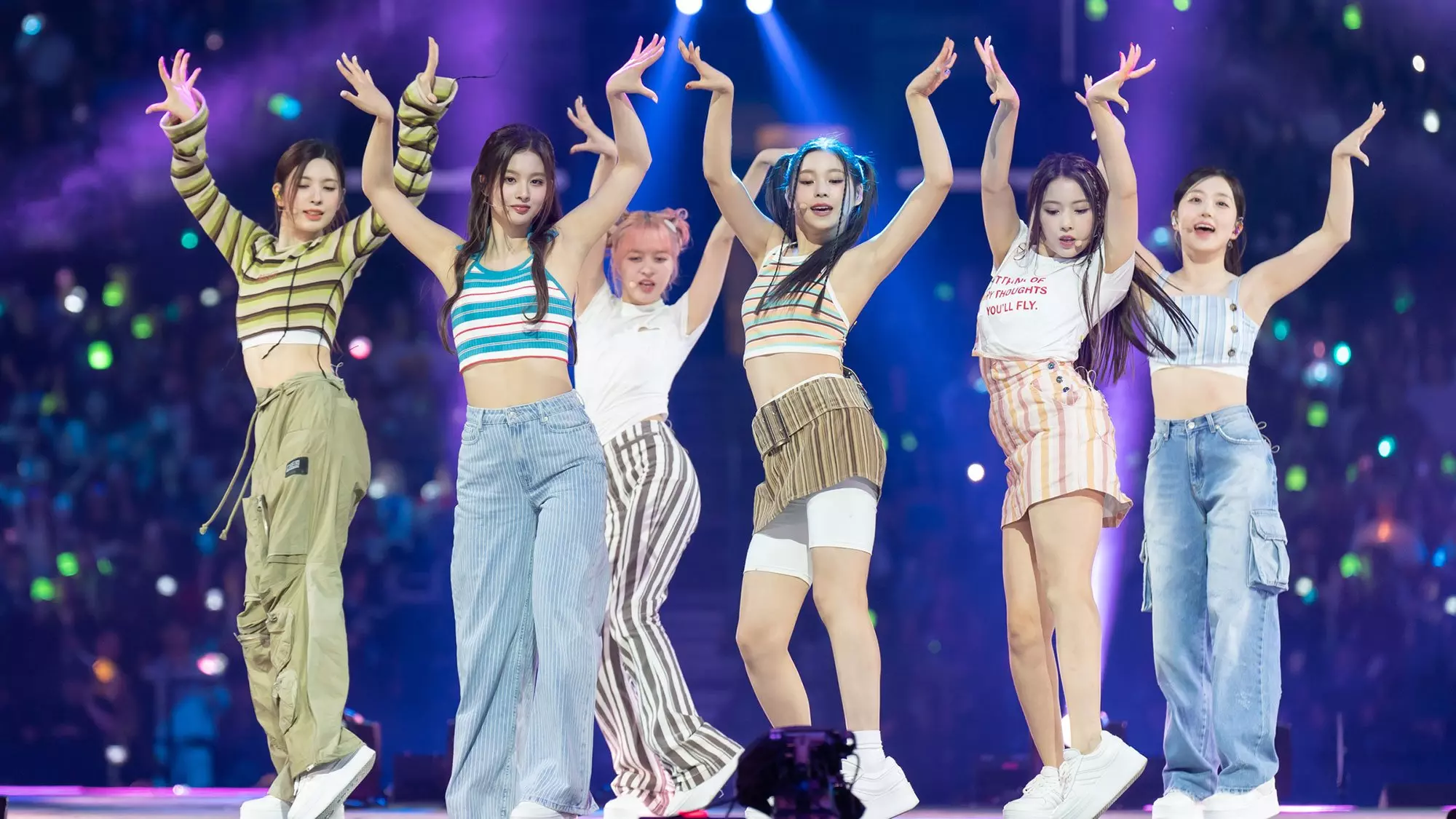
KCON L.A. 2024 Returns: Get Ready With This Playlist Featuring NCT 127, Zerobaseone, ENHYPEN, Zico & More
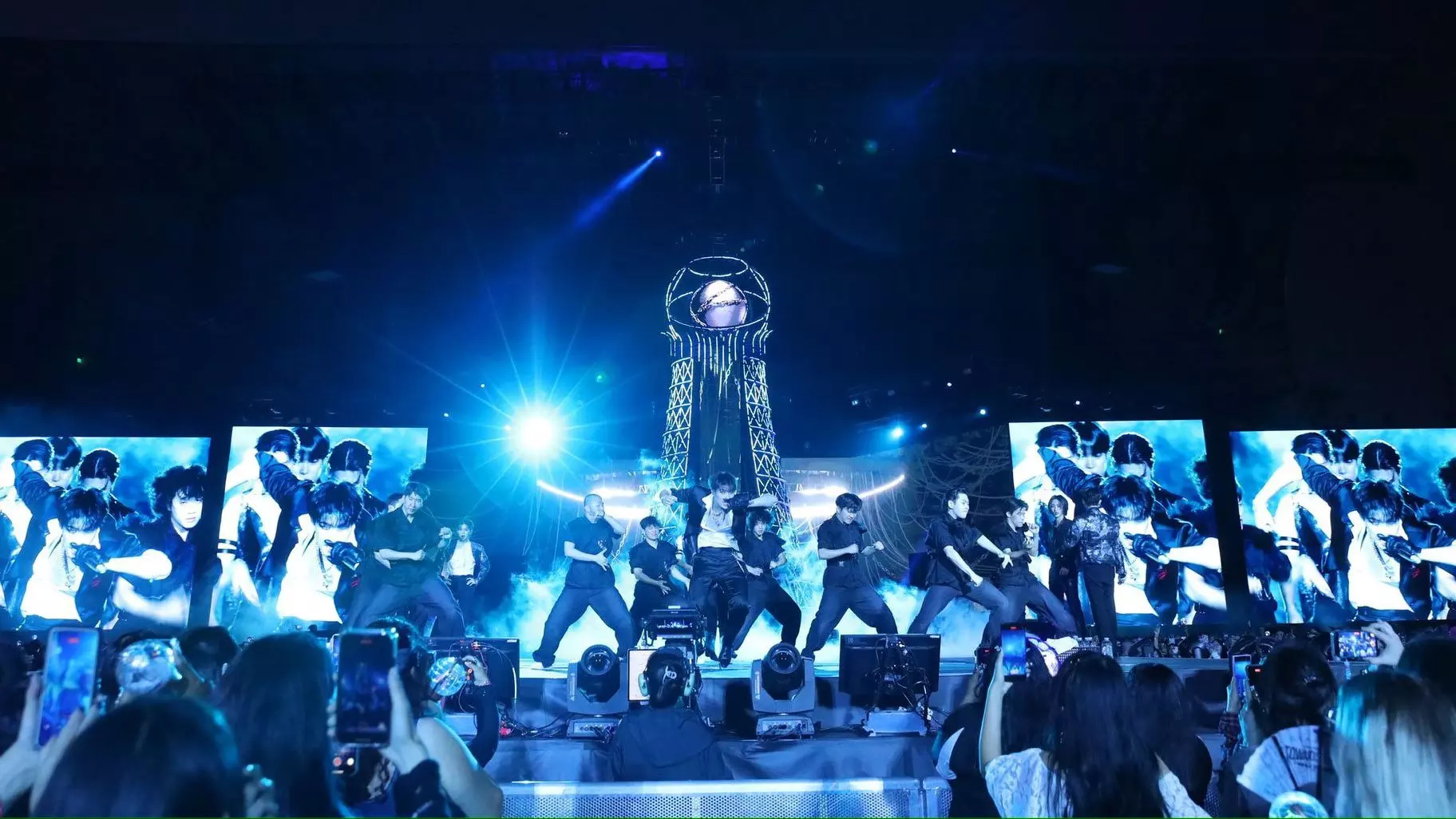
ATEEZ’s First U.S. Stadium Show Was A Triumph & Testament To Their Growth
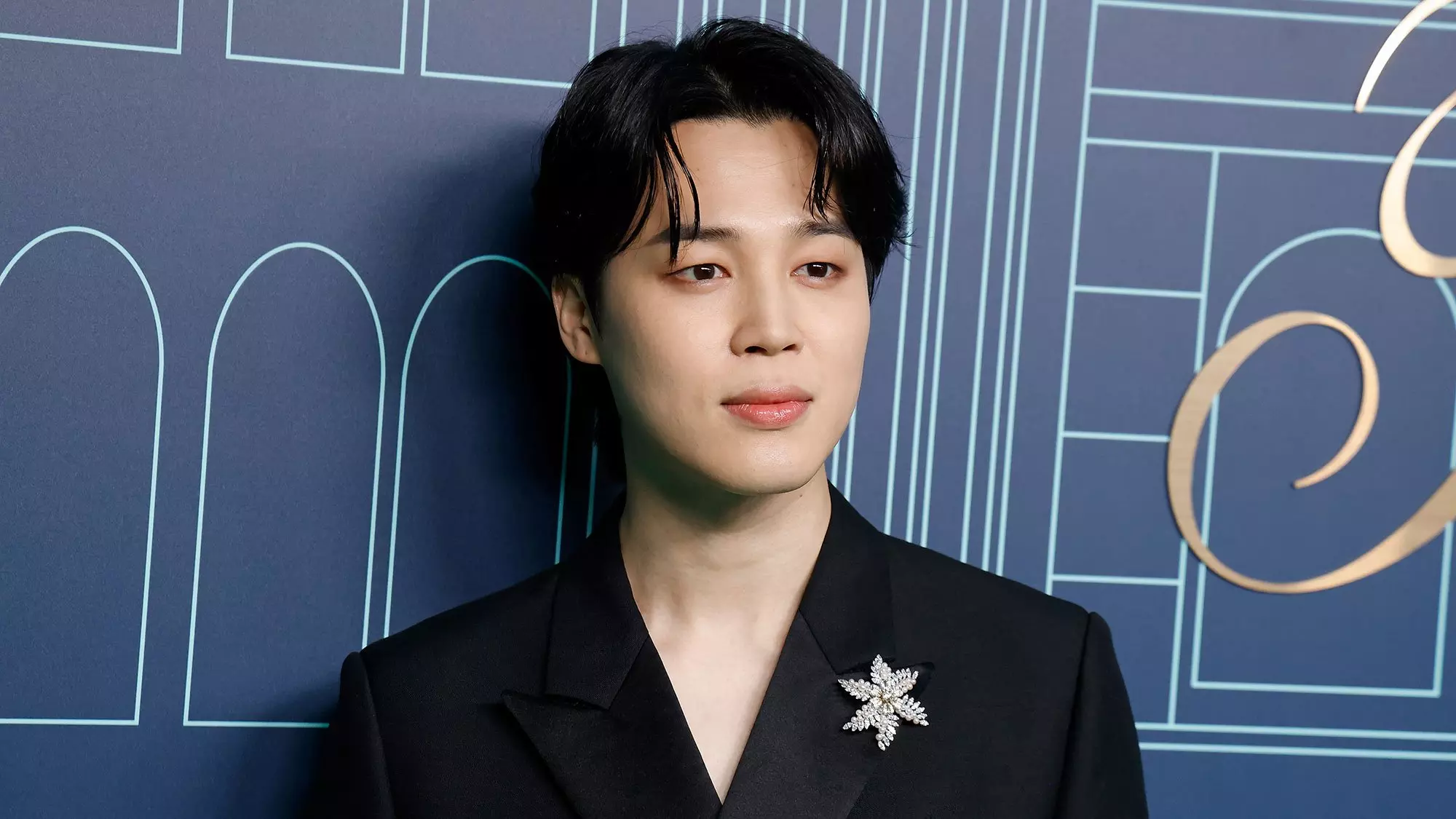
5 Takeaways from BTS Jimin's New Album, 'MUSE': A Bold Exploration Of Love And Inspiration

NCT 127 Essential Songs: 14 Tracks You Need To Know From The K-Pop Juggernauts

ENHYPEN And JVKE "Say Yes" To Cross-Cultural Collabs & Exploring New Genres
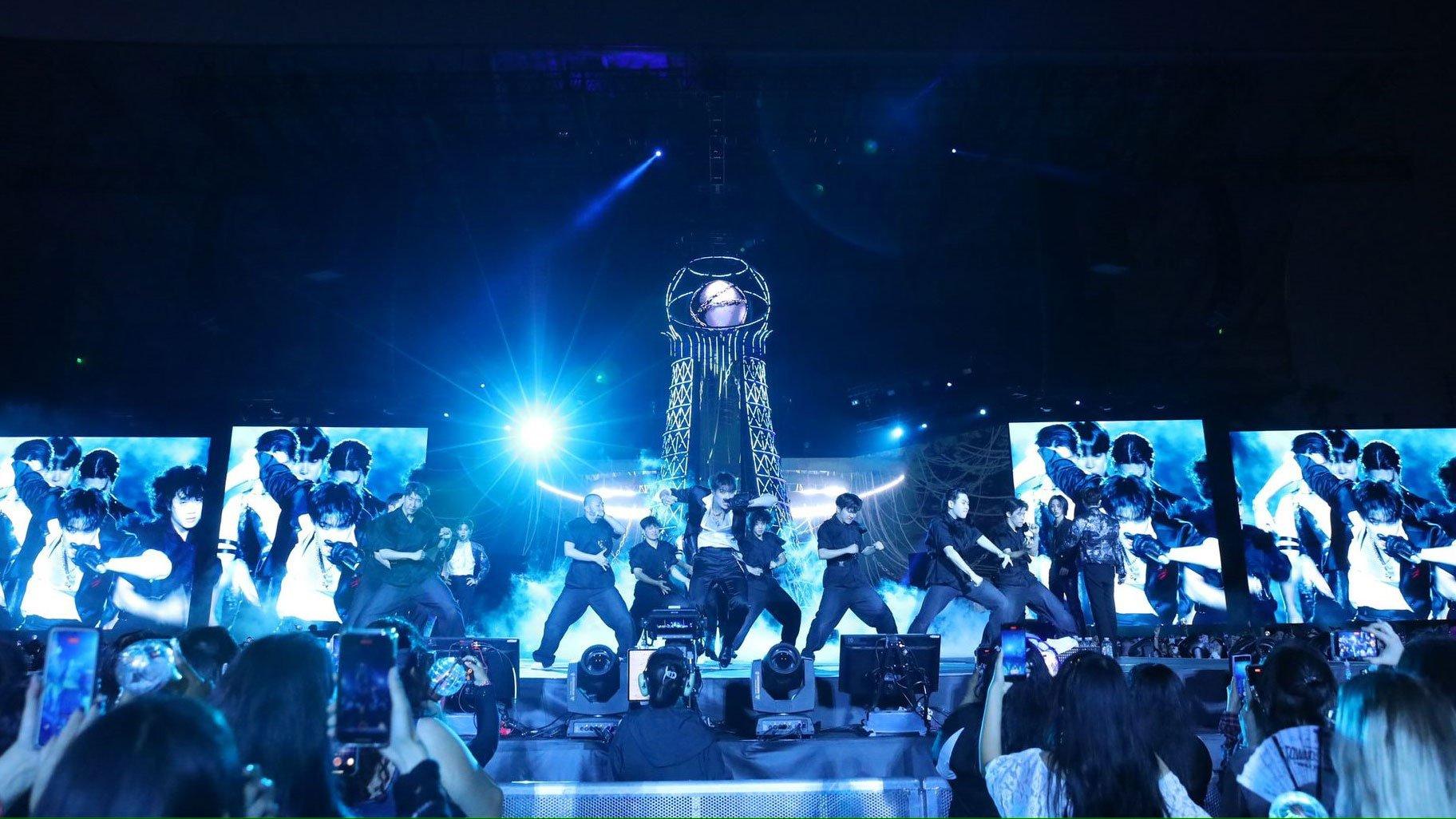
Photo: KQ Entertainment
news
ATEEZ’s First U.S. Stadium Show Was A Triumph & Testament To Their Growth
During two performances at L.A.'s BMO Stadium, the fast-rising K-pop boy group dazzled audiences with drama, dance, and a deep appreciation for how far they've come.
On July 20, K-pop boy group ATEEZ stepped foot onto one of their largest stages yet for their first U.S. stadium show. The scene at Los Angeles’ open-air BMO Stadium was a far cry from the group's L.A. performance in 2019 — their first tour stop ever — at the petite Globe Theater, a former movie palace with a tenth of BMO’s capacity.
Even then, as a five-month-old rookie group, fans (called ATINYs) saw a remarkable promise in Hongjoong, Seonghwa, Yunho, Yeosang, San, Mingi, Wooyoung, and Jongho. In the years since, ATEEZ has developed a growing presence in the States, even being the subject of a first-of-its-kind GRAMMY Museum pop-up. If the BMO Stadium performance was any indication, ATEEZ have officially hit their stride.
Read more: Inside The GRAMMY Museum's ATEEZ & Xikers Pop-Up: 5 Things We Learned
The nearly sold-out July 20 show felt like a level up, and not just because of the size of the venue. "As we performed, I really felt like ATEEZ has grown so much," singer Yunho said near the end of the night. He’s not wrong: they’re undoubtedly more confident than ever. Perhaps that’s because the octet made history earlier this year as the first K-pop boy group to perform at Coachella. Regardless, ATEEZ's growth in both production and showmanship was palpable.
If you missed ATEEZ’s two nights in L.A., don’t worry: K-pop’s resident pirate kings (more on that title later) have more up their billowy sleeves. In the spirit of their never-ending grind, the Towards the Light: Will to Power tour has nine more North American stops, including New York’s Citi Field. Read on to find out why you won’t want to miss these fast-rising K-pop idols.
The Members Are As Good Apart As Together
ATEEZ’s motto is "eight makes one team" for good reason. Individually, their talents and tastes are prismatic, yet complement each other perfectly — a fact that comes into startling clarity midway through the show, when the group breaks off into units and solos.
Equal parts erotic and controlled, trap banger "IT’S You" gives Yeosang, San, and Wooyoung room to deploy their enigmatic charms as a trio; ATEEZ’s purveyor of belted high notes, Jongho, dips into his deeper register on solo ballad "Everything"; diametric duo Hongjoong and Seonghwa spit fire about the rapport that arises from their differences on red-hot cypher "MATZ": "M-A-T-Z like allergy, we don’t really fit together / Yeah, yeah, but on stage, reacting to that synergy."
Then there’s the wistful "Youth" from dance class pals Yunho and Mingi. The two go way back — something they reminded audiences of by acting out a fictionalized version of a real phone call they shared the day before auditioning for KQ Entertainment. "Imagine us taking the stage together someday," Yunho said. "Sounds amazing, right?"
Read more: ATEEZ Are Here To Win The Hearts Of K-Pop Fans
ATEEZ Know How To Turn Up The Drama
ATEEZ's lore runs deep. In their conceptual universe, what began as a swashbuckling tale of pirates in search of treasure evolved into an anarchic manifesto about toppling the world order. Recently, in a Wild West turn, they’ve been masquerading as cowboys dedicated to the daily hustle.
Every ATEEZ performance has a story; on this tour, the theme is light. But, as always in ATEEZ’s oeuvre, that light can’t exist without a darkness seeking to quash it. The way they convey this narrative — acting, stage decoration, extras — is a masterclass in drama, fit for the theater as much as a stadium.
Watch: Global Spin: Watch Ateez Represent South Korea With Kinetic Performance Of "The Real"
They’re In Their Element Onstage
The success of ATEEZ’s storytelling is bolstered by the group’s unearthly stage presence. In that regard, Seonghwa led the pack, moving like a man possessed. Whether crawling on his knees, rolling his eyes back, or slinging a sword to symphonic backing, the lithe dancer never let the air-tight facade slip — except, of course, when it came time to offer a couple of warm words to fans.
Like Seonghwa, the rest are also shockingly versatile. San effortlessly switches between agile body rolls and thigh caresses in the dangerously sensual "Cyberpunk," then vigorously glides his arms through air at the climax of "Say My Name," a gesture that has only grown in power and potency over time.
ATINYs Do Their Best To Match ATEEZ’s Energy
"There [are] more than 20,000 singers in here," Hongjoong said as the lead-in to the soaring "Dance Like Butterfly Wings." "Can you show me your singing?"
Sing they did: All night, the crowd brought an energy as fierce and passionate as ATEEZ, especially when barking at charismatic rapper Mingi, much to his apparent enjoyment.
But the single noisiest moment came during "Guerilla." At a certain point, Yunho shouted a ferocious "Make some noise!" as a cue and ATINYs know it’s time to warm up their vocal chords; while Jongho belts some of his highest notes yet, fans roared "Break the wall!" at the top of their lungs, loud enough to rise above the stadium enclosure.
Fan chants and cheers are a mainstay of K-pop shows in South Korea, but due to differences in concert etiquette and language barriers, most don’t make their way overseas. ATEEZ and their fans broke that wall, and built a bridge in its place.
It’s A Full Circle Moment In Their Career
That ATEEZ chose to drop anchor in Los Angeles for their first U.S. stadium show feels especially momentous. The band has history in Southern California, having trained at L.A.-based dance studios Movement Lifestyle and Millenium Dance Center prior to their debut. ("Our second hometown!" San said during the show.)
"Even though it was six years ago, it feels like just yesterday," Hongjoong said in his encore speech. "It’s absolutely an honor to be right here, now, in such a big venue."
That’s a short time to come as far as they have, without slowing pace. "But, you know, it doesn’t stop," Hongjoong continued. "We will keep going to the next step and the next step, with you. Let’s keep making moments to shine even brighter, together." And if these three hours are any indication, ATEEZ has a light that won’t soon be dimmed.
More News About ATEEZ

ATEEZ’s First U.S. Stadium Show Was A Triumph & Testament To Their Growth
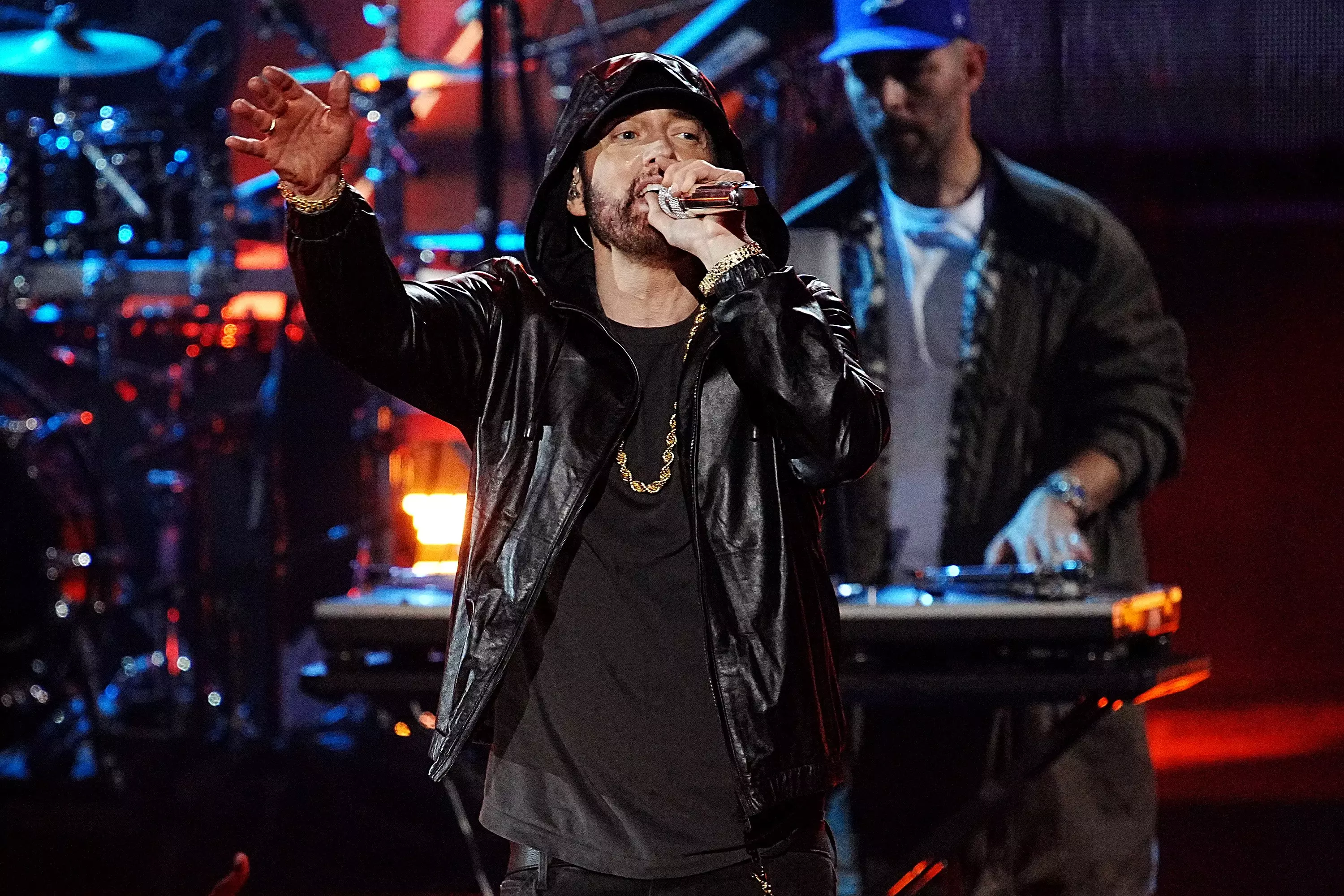
New Music Friday: Listen To New Albums & Songs From Eminem, Maya Hawke, ATEEZ & More
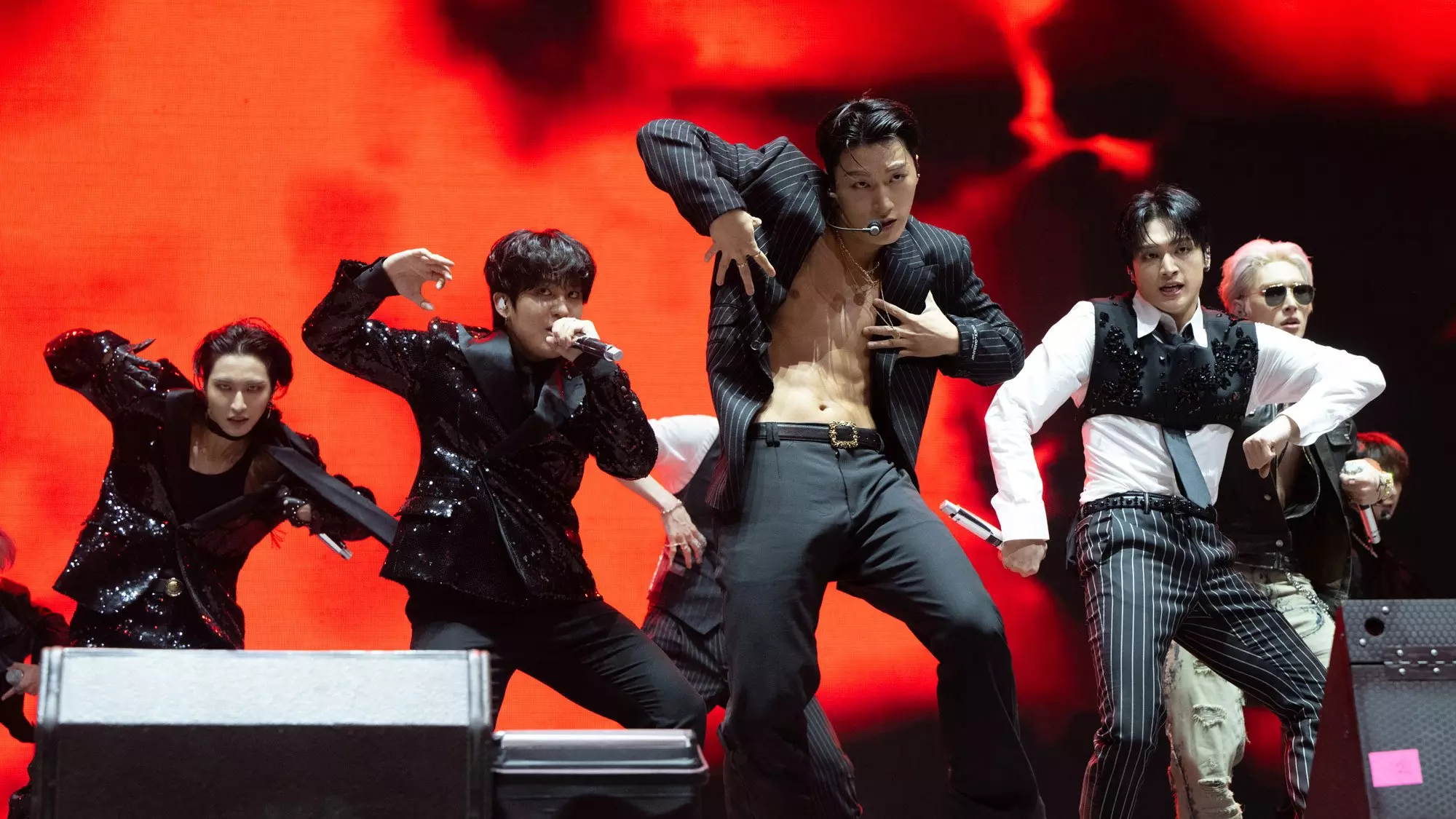
K-Pop Summer 2024 Guide: ATEEZ, IU, TXT & More Live In Concert & On Tour
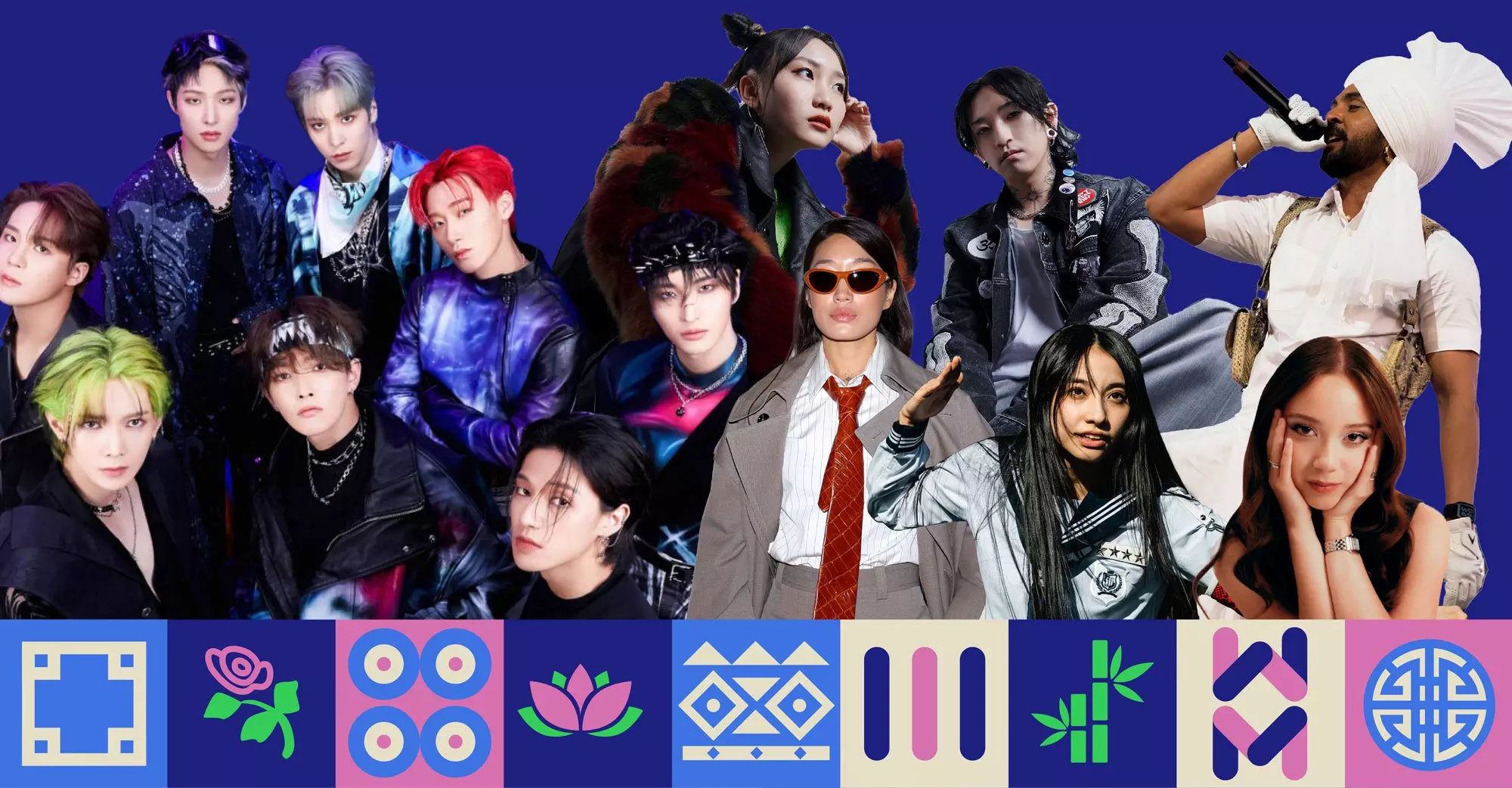
Leap Into AAPI Month 2024 With A Playlist Featuring Laufey, Diljit Dosanjh, & Peggy Gou
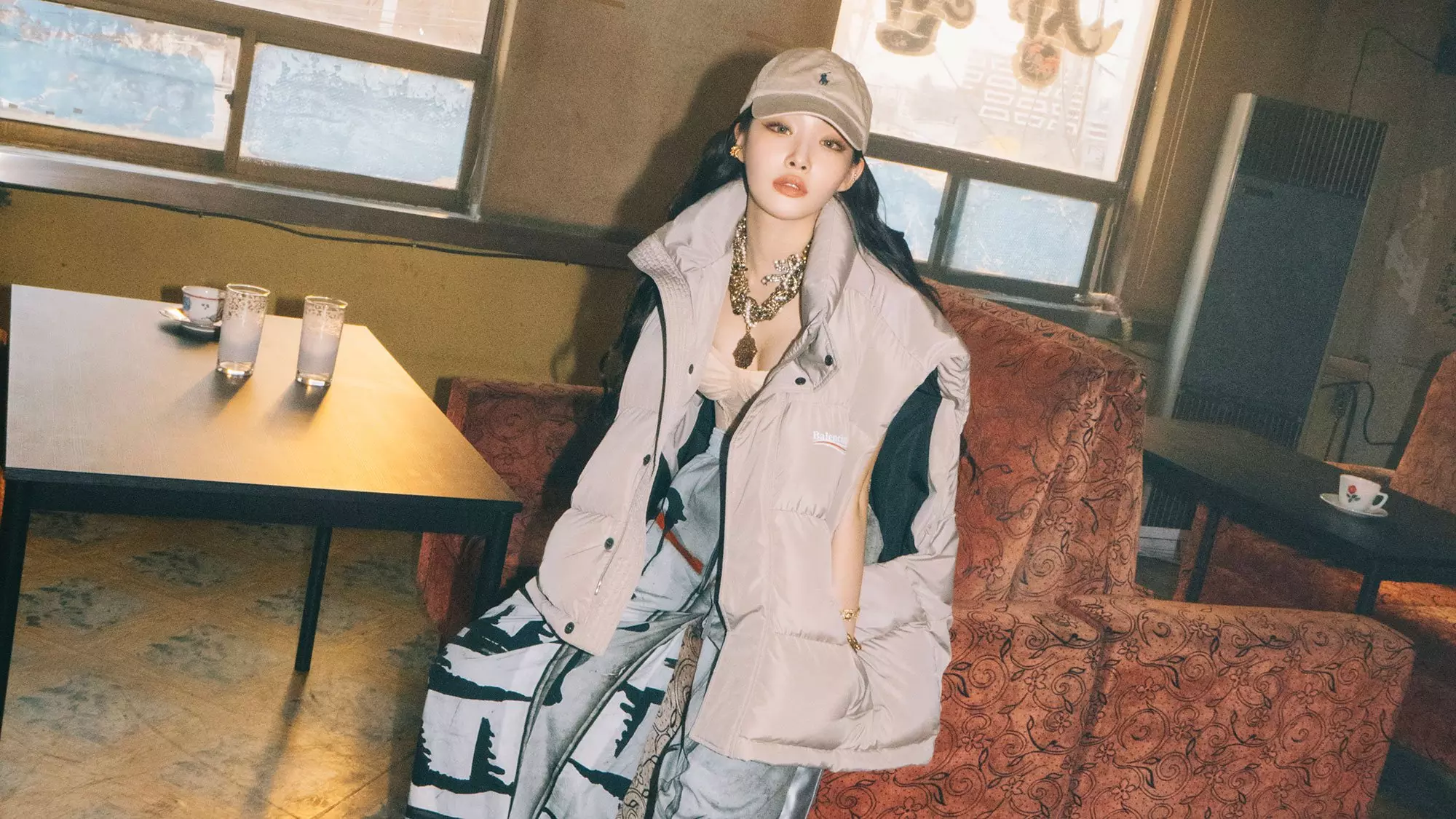
Chung Ha Returns: On 'EENIE MEENIE,' The K-Pop Soloist Is Ready To Step Back Into The Spotlight
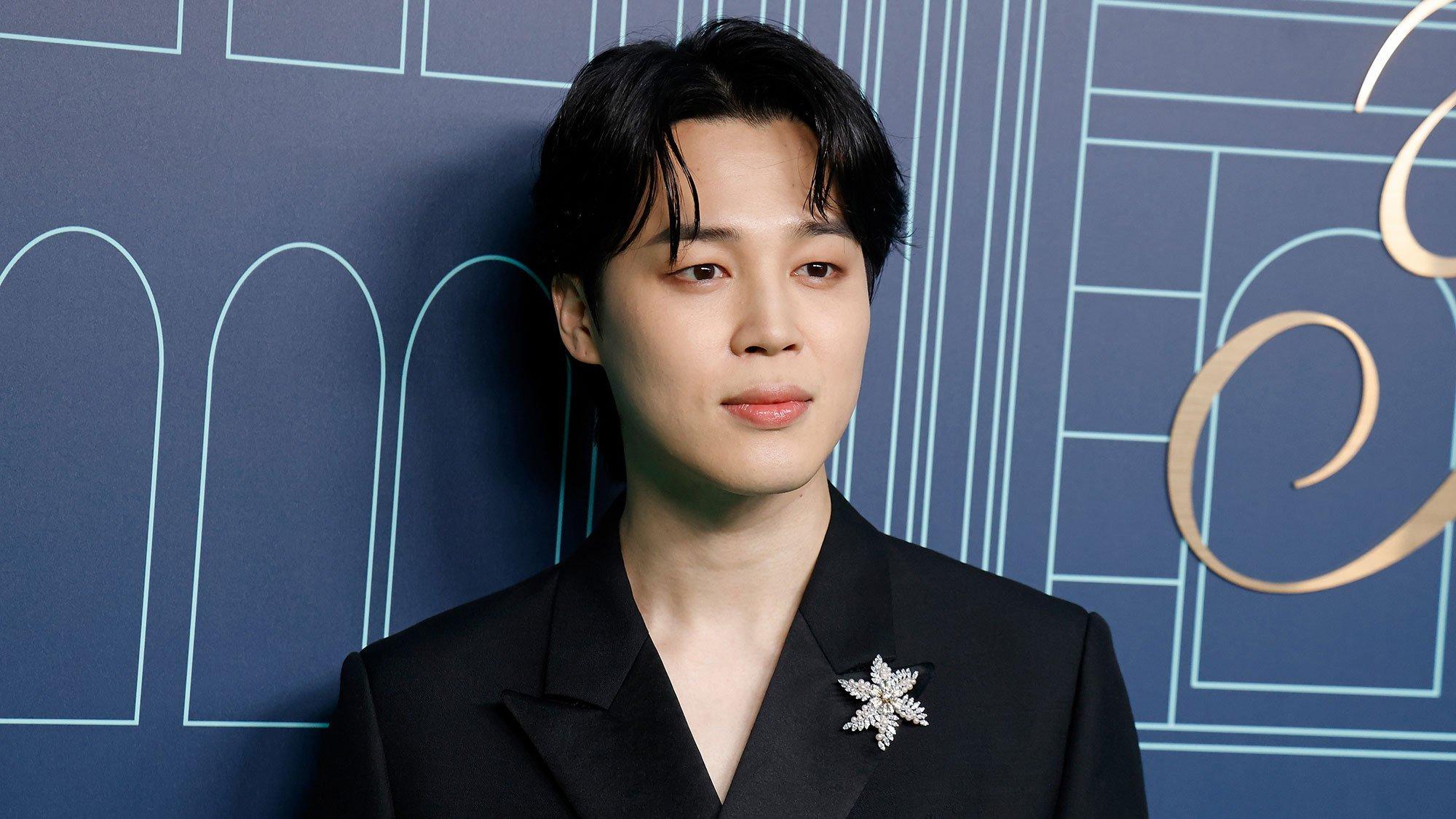
Photo: Taylor Hill/Getty Images
list
5 Takeaways from BTS Jimin's New Album, 'MUSE': A Bold Exploration Of Love And Inspiration
Jimin's second solo project, 'MUSE,' showcases his artistic growth and versatility, featuring a blend of nostalgic sounds, personal reflections, and standout collaborations.
K-pop juggernauts BTS are still on hiatus due to military enlistments, except for Jin, who was discharged last month. Yet, all members remain booked and busy in their solo endeavors.
Documentaries, travel shows, special singles — you name it, they carefully prepared it before starting their duties. And after new records from j-hope (HOPE on the Street) and RM (Right Place, Wrong Person) this year, the next in line is Jimin, who dropped MUSE today.
The album comes almost a year and a half after his debut EP, FACE, which placed Jimin as the first South Korean soloist to top Billboard's Hot 100 chart. In it, the Busan-born star proved his versatility and prowess standing on his own, captivating audiences old and new with his sensitive charisma.
In MUSE, Jimin introduces a new facet of his musical identity: bolder and more confident, but still a big softie at heart. To celebrate the beginning of a new era — and to ease the wait until his discharge next year — here are five key takeaways from Jimin's latest release, MUSE.
It's Another Jimin-Led Production
FACE was a proper introduction to Jimin's artistic vision, with him contributing to every aspect of the project and co-writing all of its tracks, minus the instrumental "Interlude: Dive."
Now, he takes it up a notch for MUSE, showcasing his growth by co-writing six out of seven tracks, and co-producing two of them: "Rebirth" and "Interlude: Showtime." Once again, Jimin had a hand on all of the album's components, including its concept and visuals, and bore down another layer of his ever-evolving skills.
If FACE introduced us to a vulnerable and sometimes desperate Jimin, MUSE charges forward with main pop boy energy, tender but commanding, sweet but sassy. It works both as a gift to fans and a tool to get to know Jimin even deeper.
He’s Still In Search Of His Muse
"We never met, but she's all I see at night/ Never met but she's always on my mind/ Wanna give her the world/ And so much more/ Who is my heart waiting for?" Jimin sings in MUSE's track, "Who." As the lyrics suggest, MUSE's main theme is Jimin's journey to find the source of his inspiration — his muse.
The album's seven tracks are all interconnected by love and longing, with Jimin searching for the one but getting lost in the way, and back at it once more. Through this perspective, he continues his path of self-discovery. After looking at his own FACE in the mirror, who else does he see? Who else instigates him enough to make art?
A Stellar Team Backs Up The Effort
To write and produce MUSE, Jimin enlisted longtime collaborators Pdogg, Ghstloop, Evan, and Supreme Boi. They have also been working with BTS for years, and know just what Jimin wants and needs in his songs.
But to make this album even more special, Jimin also collaborated with a fresh crop of professionals. Lead single "Who" was co-written and co-produced by Jon Bellion, Pete Nappi, and Tenroc, while Ayo the Producer and Kofo co-signed the fan-dedicated "Closer Than This." OneRepublic's Ryan Tedder helped pen "Be Mine," and Tommy Brown has writing credits on "Rebirth" and "Smeraldo Garden Marching Band (feat. Loco)."
Aside from Korean rapper Loco, MUSE also features American actress and singer Sofia Carson on the smooth duet "Slow Dance." Together, these names assembled a cohesive, yet diverse LP, brimming with influences from several decades, genres, and countries at once.
The Smeraldo Flower Makes A Comeback
Back in 2017, when BTS was in their LOVE YOURSELF era, they also introduced to their lore a fictional blue flower named Smeraldo. Symbolizing "a truth that cannot be told," its legend was better explored in the track "The Truth Untold (Feat. Steve Aoki)," and offered important clues to understanding that era's messages.
However, as years passed, the Smeraldo flower was largely forgotten from BTS's new works — until MUSE. Here, Jimin brings back the blue flower as one of the albums' visual concepts, and as the main motif behind pre-release "Smeraldo Garden Marching Band (feat. Loco)."
According to a press statement, the track's lyrics "express the longing to confess and find love on behalf of those unable to articulate their feelings," hence the use of Smeraldo. As for its curious title — loosely inspired by The Beatles' 1967 album Sgt. Pepper's Lonely Hearts Club Band — it came first as a casual nickname between Jimin, Pdogg, Ghstloop, and Evan while they worked together on FACE, and eventually became real.
It’s Packed With Nostalgia
If you miss Justin Timberlake's Justified sounds and other early-2000s gems, MUSE is here to take you on a nostalgic trip. Inspired by pop, R&B and hip hop from that era, Jimin gave his latest album a vintage, cozy veneer.
These references are predominantly visible on "Who" and its delightful guitar strums, but "Slow Dance (feat. Sofia Carson)," for example, sounds like an updated version of Usher and Alicia Key's "My Boo," and "Be Mine" could be the 2020's lovechild of Santana's "Maria Maria" and Sean Paul's "I'm Still In Love With You."
Another strain of references can be seen in "Smeraldo Garden Marching Band (feat. Loco)," which extends The Beatles' inspiration to experimental samples and marching band percussion, and creates a quirky piece that strays away from any current trends. "Interlude: Showtime" drinks from the same source, featuring a circus brass and drum line that introduces us to the singularity of "Smeraldo Garden."
While infused with nostalgia, MUSE still appeals to today's tastes, and offers a seamless, polished listen. It stands as a testament to Jimin's artistic growth, and while he might not have found his muse yet — he is certainly a source of inspiration for many.
More BTS News

5 Takeaways from BTS Jimin's New Album, 'MUSE': A Bold Exploration Of Love And Inspiration

GRAMMY Museum Partners With HYBE For New K-Pop Exhibit 'HYBE: We Believe In Music' Opening Aug. 2
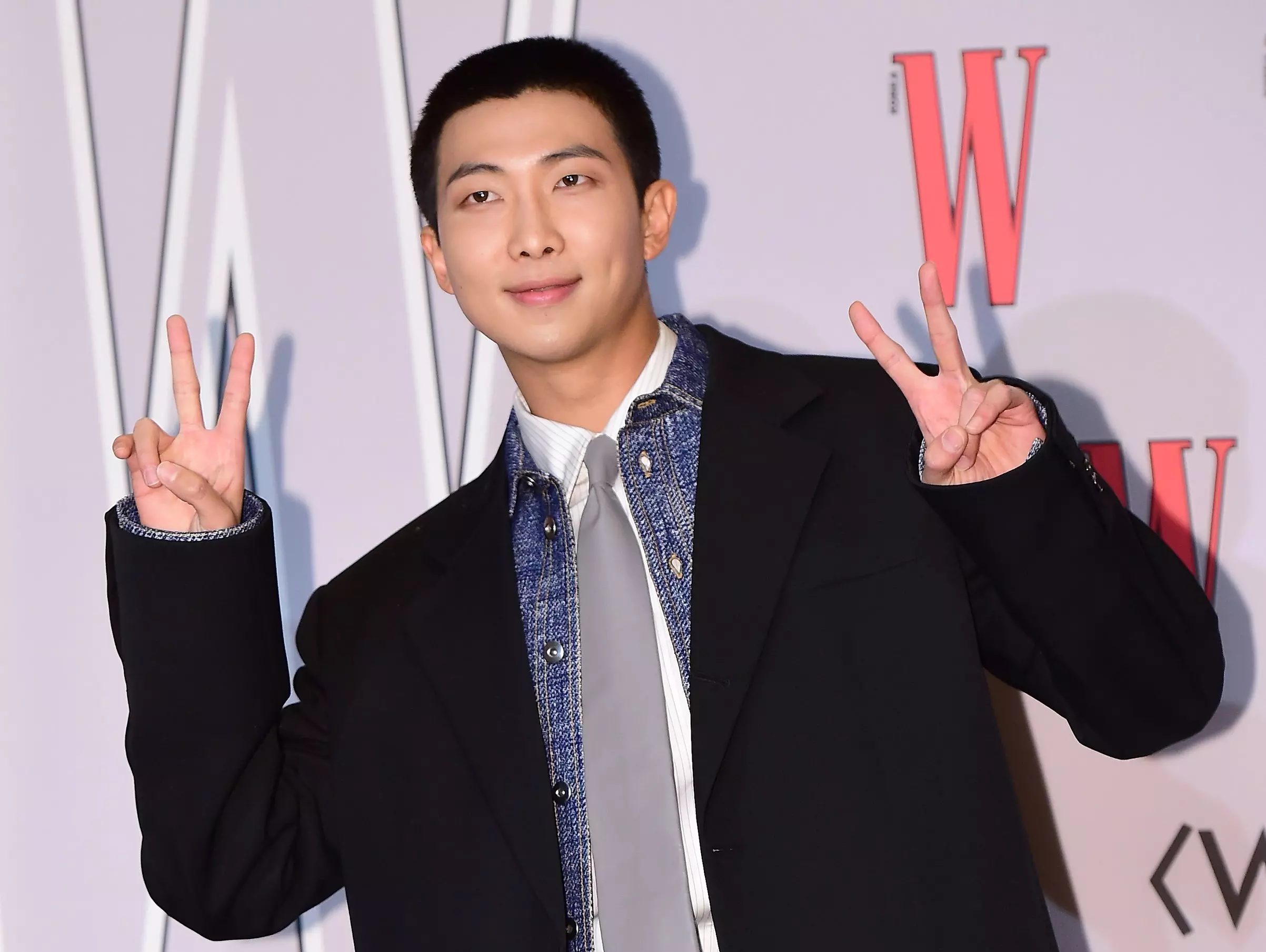
Stream RM's New Album 'Right Place, Wrong Person': See The Tracklist, "LOST!" Video & Special Guests
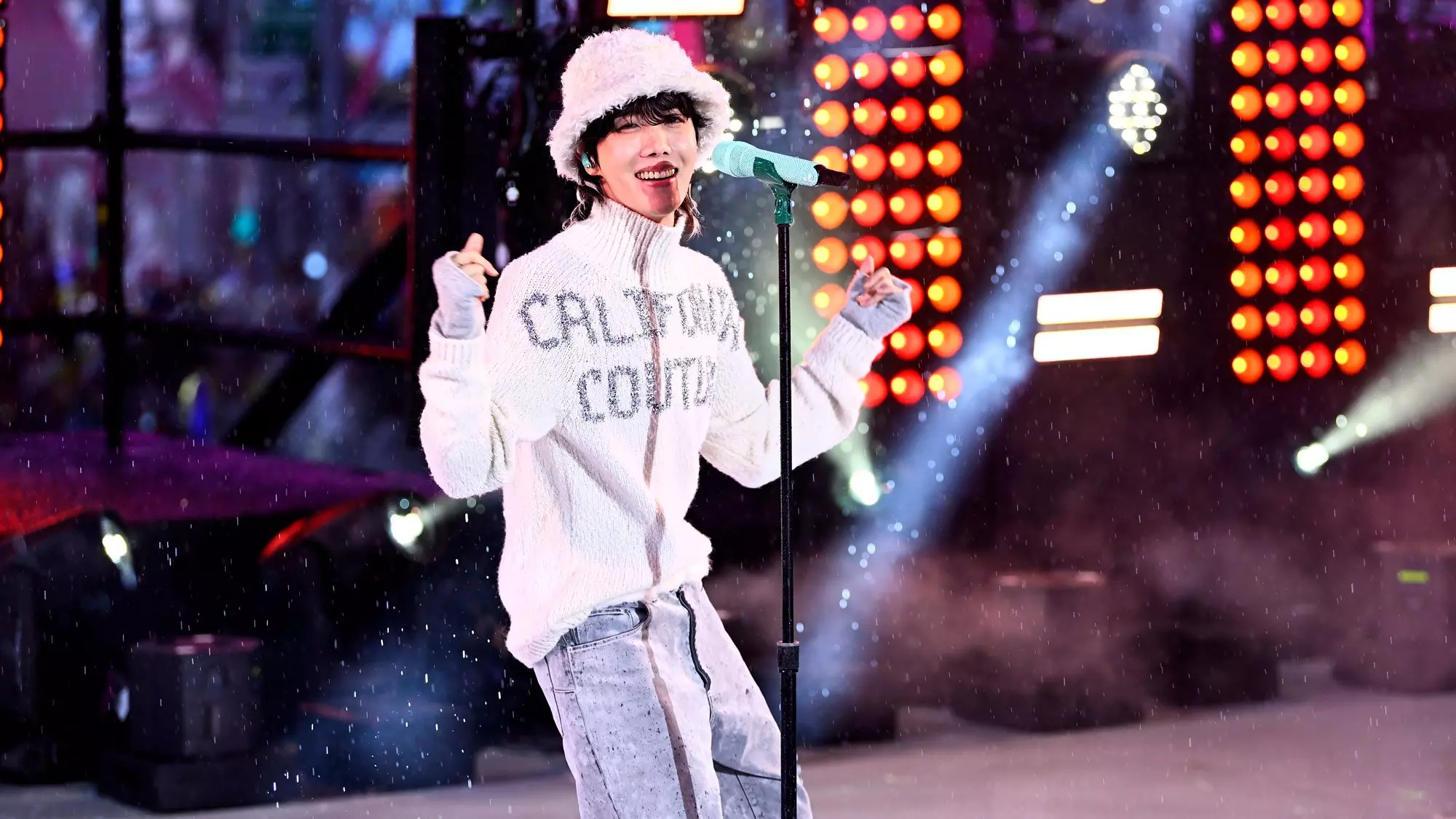
J-Hope's Road To 'Hope On The Street Vol.1,' From Falling Back In Love With Dance To Tying Together His Global Influences
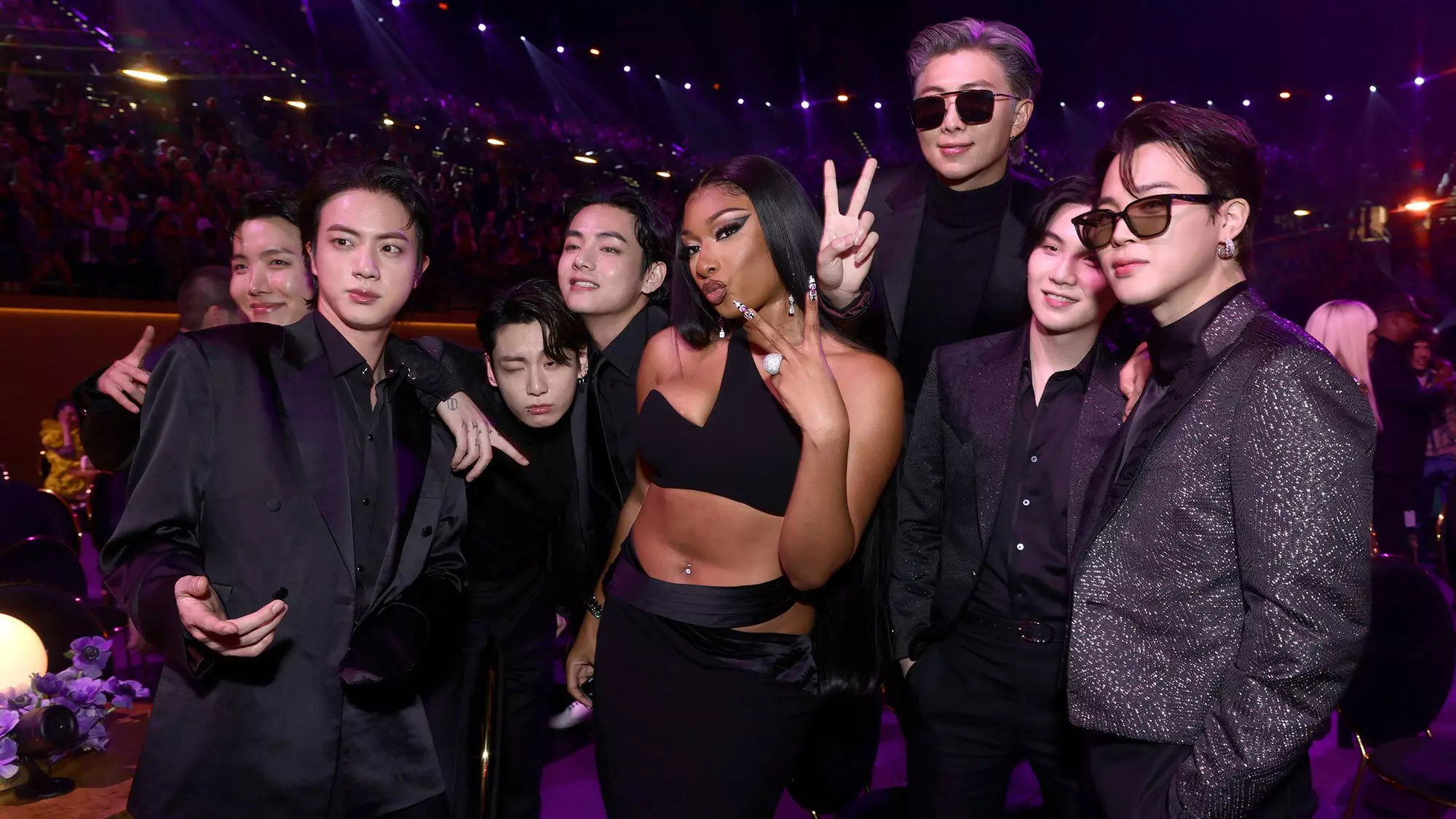
9 Essential K-Pop/Western Collabs: From BTS And Megan Thee Stallion, To IVE And Saweetie
